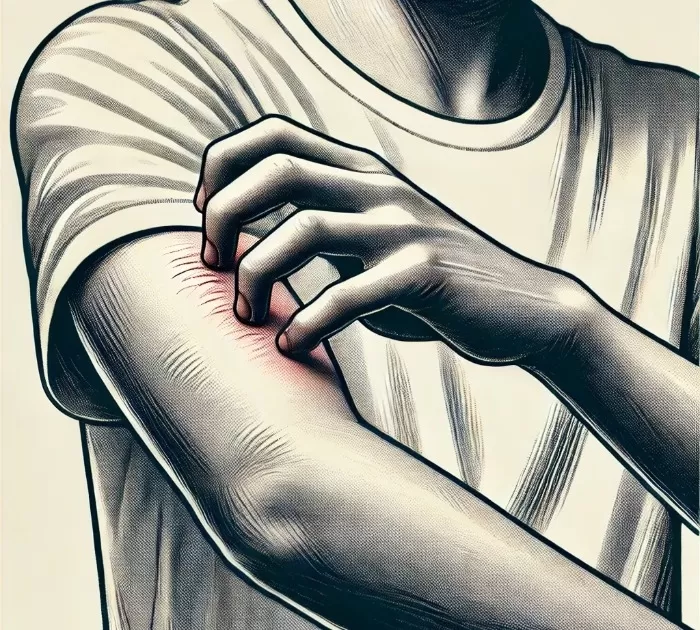What You Can Do to Ease Symptoms
Hydrate the Skin: Use a moisturizer twice daily, preferably one that’s unscented, hypoallergenic, and formulated for sensitive skin. Opt for creams or ointments over lotions, as they tend to be more moisturizing. Consider products containing hyaluronic acid, glycerin, or ceramides to boost hydration.
Gentle Skincare Routine: Avoid harsh soaps and opt for gentle, fragrance-free cleansers. Limit hot showers, as hot water can strip the skin of natural oils. Pat the skin dry and apply moisturizer while the skin is still slightly damp to lock in moisture.
Avoid Common Irritants; Avoid synthetic fabrics and choose natural fibers like cotton. Steer clear of perfumed or exfoliating products, which can aggravate sensitive skin.
Stay Hydrated and Eat a Skin-Friendly Diet: Drink plenty of water throughout the day to keep your skin hydrated. A diet rich in omega-3 fatty acids (like salmon and walnuts) and antioxidants (found in berries, leafy greens) can help maintain skin health.
Over-the-Counter Relief: Anti-itch creams with ingredients like hydrocortisone can help relieve itchiness as can antihistamine tablets which can be effective for nighttime itching, though it’s best to consult a healthcare provider before using them regularly. Colloidal oatmeal baths or moisturizers can help calm itchy, dry skin.



